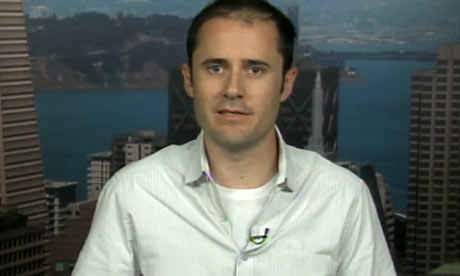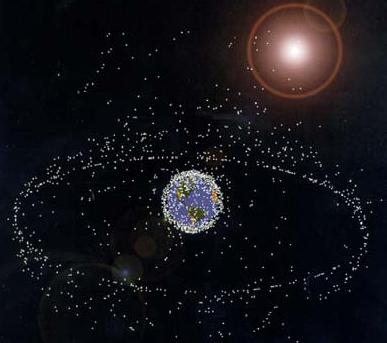 The elections in Iran have once again shown the power of social networks and Twitter in particular. We can say that Twitter is making history. The content on Twitter is changing the course of events. However, most of that history lives within tags, such as #iranelection, and these tags will die or be lost in a few weeks time as our ability to retain them and search for them slips beyond the reach of Twitter Search or other search engines. Twitter Search doesn’t give you access to a tag beyond two or three weeks. This is a serious problem.
The elections in Iran have once again shown the power of social networks and Twitter in particular. We can say that Twitter is making history. The content on Twitter is changing the course of events. However, most of that history lives within tags, such as #iranelection, and these tags will die or be lost in a few weeks time as our ability to retain them and search for them slips beyond the reach of Twitter Search or other search engines. Twitter Search doesn’t give you access to a tag beyond two or three weeks. This is a serious problem.
The whole issue of the digital record is one that is becoming incredibly important for the future of social media – and an area that, in my opinion, isn’t receiving enough attention. If we can’t find a way to create and preserve a relevant digital record we will find ourselves destroying history as fast as we make it. This record has to work according to the controlling dynamics of social media – availability and accessibility.
It may well be that the individual tweets that collectively are making history in Iran at the moment will still live somewhere in the digital record – in a place. However, Twitter more so than any other social media tool is defined by space, not place. The power of Twitter in the Iran issue and all others of historical influence, lies in tags and the creation of tag spaces. These spaces live only in search or other forms of aggregation. Lose the ability to search for it and aggregate it – and essentially we lose the information.
In the old days of traditional information, one printed copy of a document or a newpaper article held within a secure archive was enough. There was a whole institutionalised system for ensuring that this information was held within the collective memory. Social media doesn’t work like that. It is defined by its ubiquity, by its ease of access, by its availability. Restrict any of these things and you kill it. Restriction of access has almost the same effect as actual removal or erradication of the information.
If ever there is one thing we should worry about – this is it. Forget social media doing away with cultural gatekeepers, the media and other institutionalised sources of trust and all the other arguments that have been raised against it. This issue losing or destroying history is what we should really be worried about.
 Here is a transcript from the Guardian of the interview last night on the BBC’s Newsnight programme with Evan Williams – founder of Twitter. What it reveals is a curious paradox. One the one hand, the BBC is probably the world’s most progressive media organisation in terms of understanding social media, yet one the other the editorial approach in its traditional programmes and from its traditional journalists appears to display total ignorance and denial of what is happening. Continue reading
Here is a transcript from the Guardian of the interview last night on the BBC’s Newsnight programme with Evan Williams – founder of Twitter. What it reveals is a curious paradox. One the one hand, the BBC is probably the world’s most progressive media organisation in terms of understanding social media, yet one the other the editorial approach in its traditional programmes and from its traditional journalists appears to display total ignorance and denial of what is happening. Continue reading 
 I have recently had reason to focus on the area of monitoring of social media which has involved looking once more at the whole range of black box monitoring solutions that are out there. This has caused me deep feelings of confusion and uncertainty.
I have recently had reason to focus on the area of monitoring of social media which has involved looking once more at the whole range of black box monitoring solutions that are out there. This has caused me deep feelings of confusion and uncertainty. @obionyeaso
@obionyeaso Wired has just published an
Wired has just published an  Telling people that social media is about spaces rather than places draws a blank look from 90 per cent of people. I have therefore been searching for the good old analogy that helps people understand this concept. This search has also been prompted by a current project where a client “wants to be on Twitter” but wants to achieve this is a viral, one Tweet will make me famous, sort of a way and it is important to help them understand why this is unlikely to work.
Telling people that social media is about spaces rather than places draws a blank look from 90 per cent of people. I have therefore been searching for the good old analogy that helps people understand this concept. This search has also been prompted by a current project where a client “wants to be on Twitter” but wants to achieve this is a viral, one Tweet will make me famous, sort of a way and it is important to help them understand why this is unlikely to work. The elections in Iran have once again shown the power of social networks and Twitter in particular. We can say that Twitter is making history. The content on Twitter is changing the course of events. However, most of that history lives within tags, such as #iranelection, and these tags will die or be lost in a few weeks time as our ability to retain them and search for them slips beyond the reach of Twitter Search or other search engines. Twitter Search doesn’t give you access to a tag beyond two or three weeks. This is a serious problem.
The elections in Iran have once again shown the power of social networks and Twitter in particular. We can say that Twitter is making history. The content on Twitter is changing the course of events. However, most of that history lives within tags, such as #iranelection, and these tags will die or be lost in a few weeks time as our ability to retain them and search for them slips beyond the reach of Twitter Search or other search engines. Twitter Search doesn’t give you access to a tag beyond two or three weeks. This is a serious problem. Everything I bang on about concerning social media: the
Everything I bang on about concerning social media: the  I have been spending time today working with an agency on a response to a social media monitoring brief. The view on how to approach this – coming from the agency and the client – has been based around identifying and monitoring places (blogs etc). I have found myself saying on a number of occasions that “social media monitoring is about understanding and monitoring the space more than the place”.
I have been spending time today working with an agency on a response to a social media monitoring brief. The view on how to approach this – coming from the agency and the client – has been based around identifying and monitoring places (blogs etc). I have found myself saying on a number of occasions that “social media monitoring is about understanding and monitoring the space more than the place”.